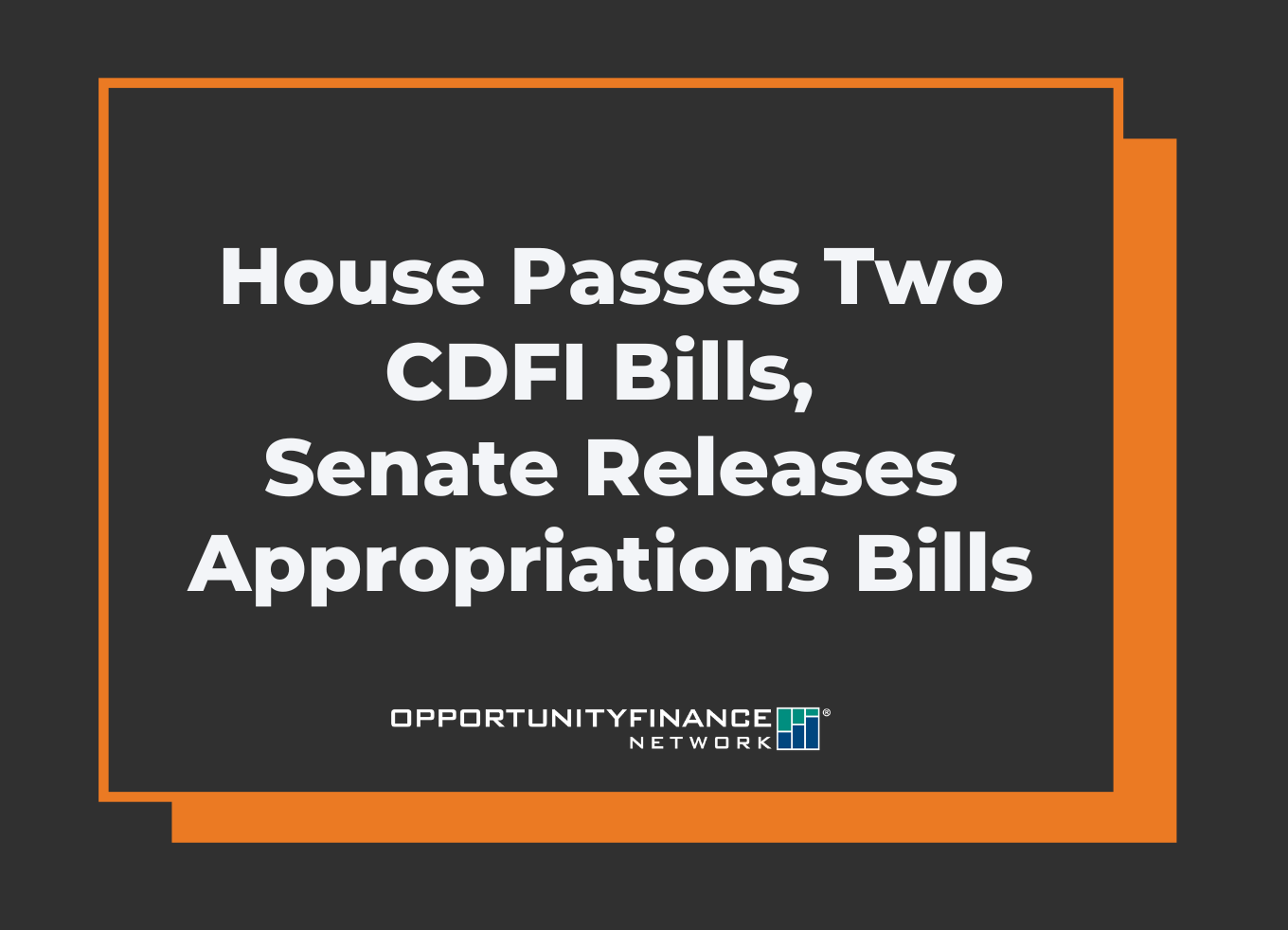
House Passes Two CDFI Bills, Senate Releases Appropriations Bills
Mary Scott Balys
Congress has engaged in a flurry of activity recently as they prepare to leave D.C. for several weeks for their annual August recess. The House has passed two bills of importance to CDFIs, and the Senate released their Fiscal Year 2023 (FY23) appropriations bills.
Appropriations
On July 20, the House of Representatives passed a minibus appropriations bill containing six of their 12 proposed spending bills for FY23. The package contains the Financial Services and General Government bill, which included $336.42 million for the CDFI Fund when it passed out of the Appropriations Committee last month.
During the floor debate on the bill, Representative Veronica Escobar (D-TX) offered an amendment to add $2 million to the funding for the Economic Mobility Corps. The amendment was adopted, increasing the total funding for the CDFI Fund to $338.42 million. This additional funding would be a $43 million increase from the current fiscal year.
On the Senate side, the Senate Appropriations Committee released their FY23 bills on July 28. The Senate Financial Services and General Government bill proposes $324 million for the CDFI Fund. The Senate currently has no plans to hold subcommittee or full committee mark ups of their bills nor any path to move them forward to the Senate floor.
The proposed funding levels in both the House and Senate fall far short of the $1 billion needed annually to meet current CDFI demand and allow the industry to scale to meet the needs of communities it serves.
CDFI Bond Guarantee Program
On July 27, the House passed HR 7733, the Bond Guarantee Program Improvement Act of 2022. This bill would extend the program for four years and reduce the minimum loan size to $25 million to allow smaller CDFIs to use the program. A similar bipartisan bill is in the Senate, S. 3441, but has not yet passed out of committee or to the Senate floor.
Outlook for the rest of 2022
The House and Senate have not reached an agreement on topline spending numbers and a continuing resolution will likely be needed to keep the government funded when the fiscal year begins on October 1, 2022.
With the midterm elections looming, Congress is unlikely to pass any major pieces of legislation before early November.